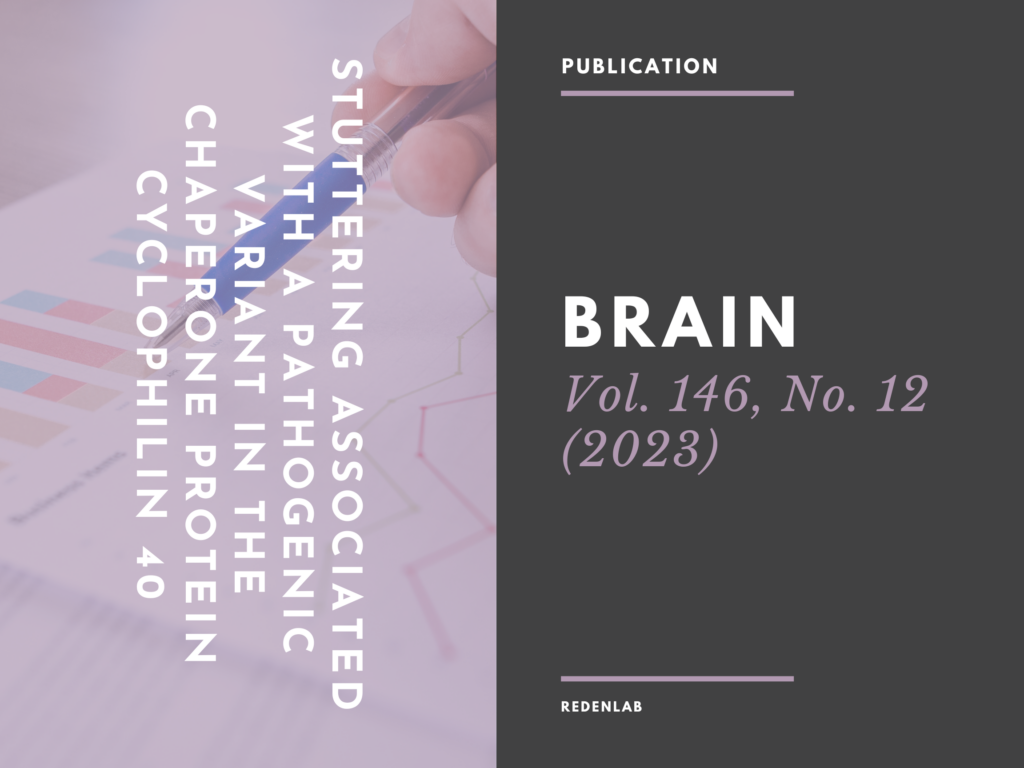Stuttering is a speech disorder characterised by the prolongation or repetition of speech words, sounds or syllables, together with interruptions through “blocks” or hesitations.
In this groundbreaking study, a variant of the PPID gene was discovered in a family with persistent developmental stuttering. Significant structural changes in the brains of individuals who stutter that affect their speech and language development were found using brain imaging, acoustic analysis of ultrasonic mouse vocalisations and behavioural testing.
This study was conducted in collaboration with Angela T. Morgan, Thomas Scerri, Christopher Reid, Mara Quach, Vicki Jackson, Chaseley McKenzie, Emma Burrows, Mark F. Bennett, Samantha Turner, Sheena Reilly, Sarah E. Horton, Susan Block, Elaina Kefalianos, Carlos Eduardo Frigério Domingues, Eduardo Sainz, Kristin A. Rigbye, Travis J. Featherby, Kay L. Richards, Andrew Kueh, Marco Herold, Mark A. Corbett, Jozef Gecz, Ingo Helbig, Daisy T., Frederique Liegeois, Robert J. Morell, Andrew Hung, Dennis Drayna, Ingrid Scheffer, David K. Wright, Melanie Bahlo, and Michael Hildebrand, who are from the following organisations: Murdoch Children’s Research Institute (MCRI), University of Melbourne, WEHI (Walter and Eliza Hall Institute of Medical Research), Monash University, Griffith University, La Trobe University, The National Institutes of Health, University of Adelaide, South Australian Health and Medical Research Institute, Children’s Hospital of Philadelphia, UCL, RMIT University and The Royal Children’s Hospital.
For more details on the study, click here.

